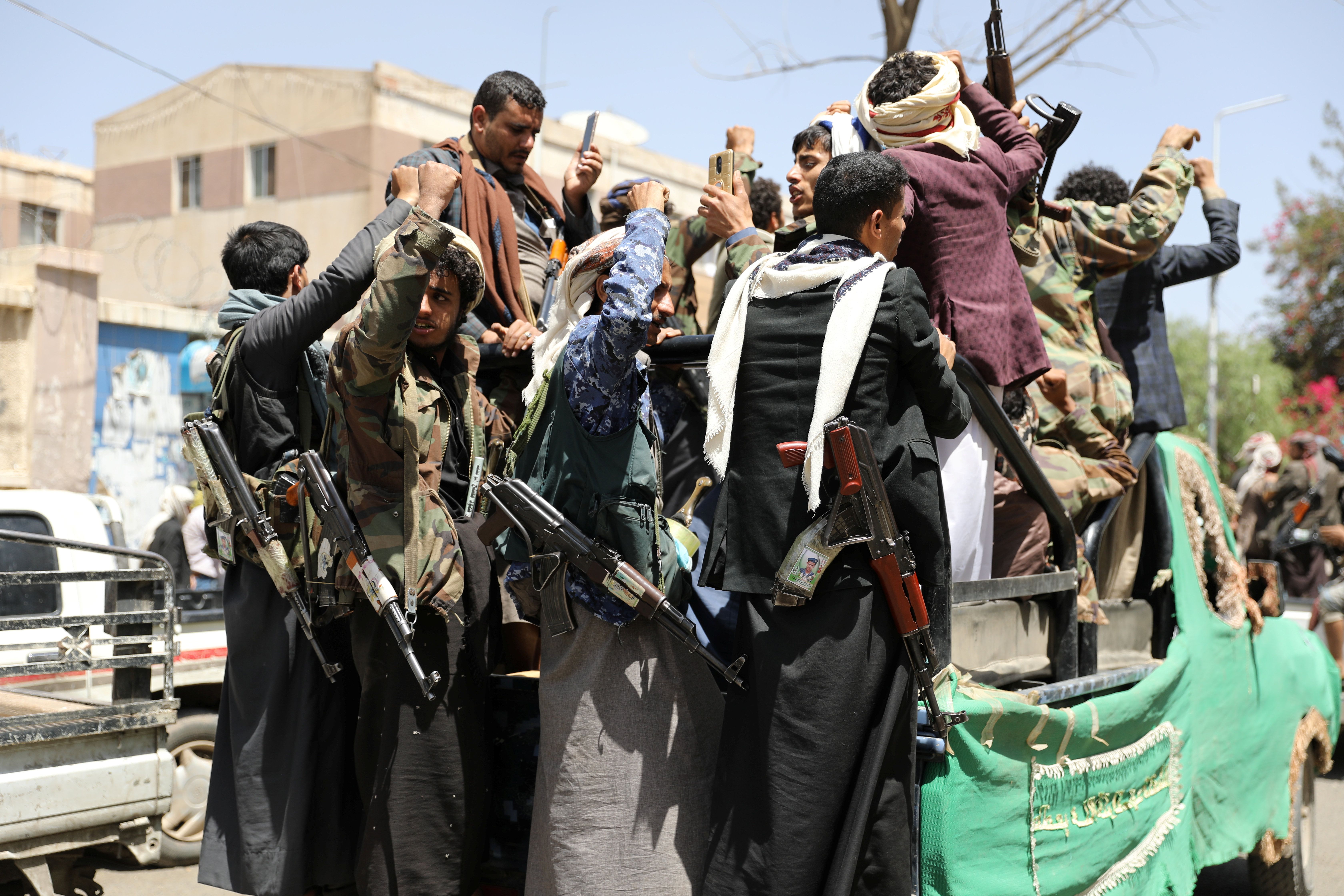April 09, 2020
Tenuous cease-fire in Yemen: The Saudi-UAE led coalition that has been battling Houthi rebels in Yemen announced Thursday a unilateral ceasefire, responding to a UN call for a halt in hostilities as coronavirus threatens one of the poorest countries in the world. Details are murky but the measure is to last for at least 14 days. The coalition's Houthi insurgent opponents, for their part, seem to have agreed to a cessation of hostilities but only if the Gulf states lift a yearlong air blockade. While there are potentially crossed signals, the ceasefire itself is still the most significant step towards peace in a five year civil war that's already killed some 100,000 people and left millions exposed to disease and starvation. Though no COVID-19 cases have been confirmed in Yemen (likely because of a lack of testing), the country's decrepit medical system could not withstand a serious outbreak of disease. The UN hopes this lull in fighting will pave the way for broader peace talks. Past attempts at halting the conflict have failed, and recent months actually saw increased fighting in a war that is largely viewed as a proxy conflict between Saudi Arabia and Iran. Will the specter of a pandemic finally bring these bitter rivals to the table?
Slovakia walls off Roma villages: Amid coronavirus fears, Slovakia's government has walled off several Roma settlements in the country's east, preventing their people from leaving, even to access essential services. Many of Slovakia's 500,000 Roma live in crowded and impoverished shantytowns, which the government says are a "high risk" for spreading COVID-19. Roma leaders point out that although testing has been scarce, only 31 out of Slovakia's 700 cases have been reported in Roma communities, and say that the isolation measures are just another example of the discrimination long-faced by Europe's 12 million Roma, the EU's largest ethnic minority. The Slovak prime minister said he would ensure food and medical deliveries to these enclaves despite restrictions on movement, but the Roma communities argue that if the government insists on blocking off their villages, which prevents them from getting to essential jobs in the informal economy, it needs to ensure a more generous social safety net for them.
Stars of the Black Plague return: You've probably seen pictures of animals around the world reclaiming urban and suburban spaces abandoned by quarantining humans. Goats roaming the streets in Wales. Monkey brawls in Thailand. Coyotes leaving their hearts in San Francisco. But one aspect of nature's return might be less fuzzy and fun and endearing. Robert Corrigan, a famous rodentologist in New York City has warned that as restaurants close and streets fall silent, public spaces and people's homes could be overrun by rats in search of scarcer food. We've already seen video of the pests having a party on a deserted street in the heart of New Orleans. If the rats are unable to turn up the usual survival scraps by running through our homes, Corrigan told The Hill, they could turn to cannibalism – devouring each other instead. Rats of course have a bit of a history with pandemics. They are remembered as the villains of the Black Plague – though the rats we've spoken to are quick to point out that fleas were the real culprit then. Keep your trash tightly covered, readers.
More For You
Prime Minister Narendra Modi, with President of the European Council António Luís Santos da Costa, and President of the European Commission Ursula von der Leyen, at Hyderabad House, in New Delhi, India, on Jan. 27, 2026.
DPR PMO/ANI Photo
On Tuesday, the world’s largest single market and the world’s most populous country cinched a deal that will slash or reduce tariffs on the vast majority of the products they trade.
Most Popular
Sponsored posts
Five forces that shaped 2025
What's Good Wednesdays
What’s Good Wednesdays™, January 28, 2026
Mexican President Claudia Sheinbaum Pardo stands alongside Canadian Prime Minister Mark Carney and US President Donald Trump during the 2026 World Cup draw at the John F. Kennedy Center for the Performing Arts in Washington, D.C., on December 5, 2025.
Deccio Serrano/NurPhoto
Canadian Prime Minister Mark Carney has repeatedly tussled with US President Donald Trump, whereas Mexican President Claudia Sheinbaum has tried to placate him. The discrepancy raises questions about the best way to approach the US leader.
Fighters of the Qassam Brigades, the armed wing of the Palestinian Islamist Hamas movement, attend a rally marking the 35th anniversary of the group's foundation in Gaza City on December 14, 2022.
Photo by Majdi Fathi/NurPhoto
10,000: The number of Hamas officers that the militant group reportedly wants to incorporate into the US-backed Palestinian administration for Gaza, in the form of a police force.
Walmart is investing $350 billion in US manufacturing. Over two-thirds of the products Walmart buys are made, grown, or assembled in America, like healthy dried fruit from The Ugly Co. The sustainable fruit is sourced directly from fourth-generation farmers in Farmersville, California, and delivered to your neighborhood Walmart shelves. Discover how Walmart's investment is supporting communities and fueling jobs across the nation.
© 2025 GZERO Media. All Rights Reserved | A Eurasia Group media company.
